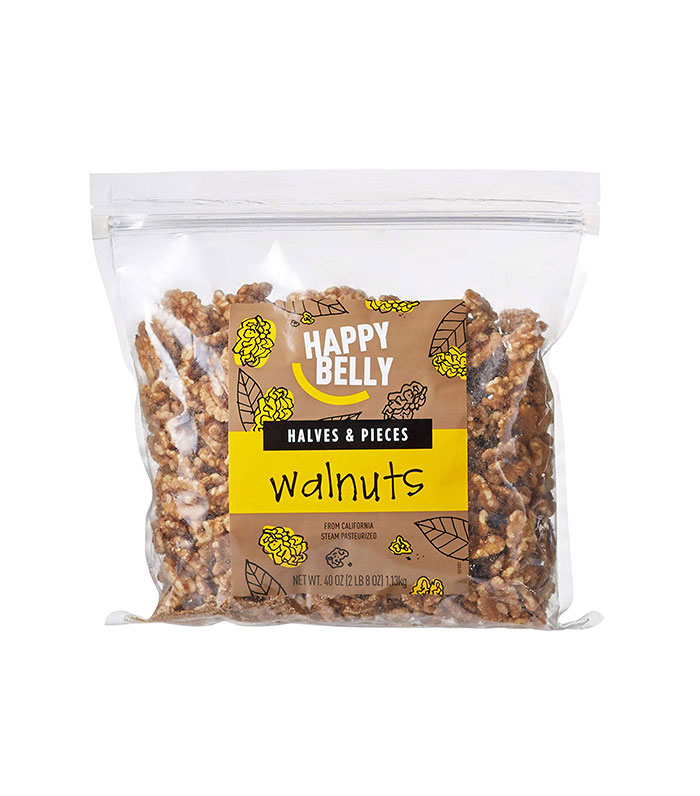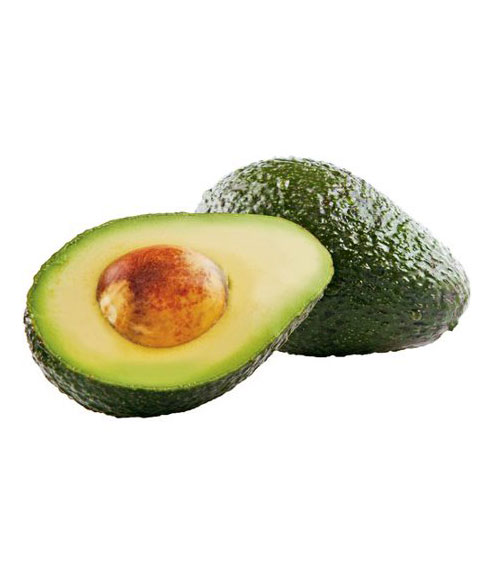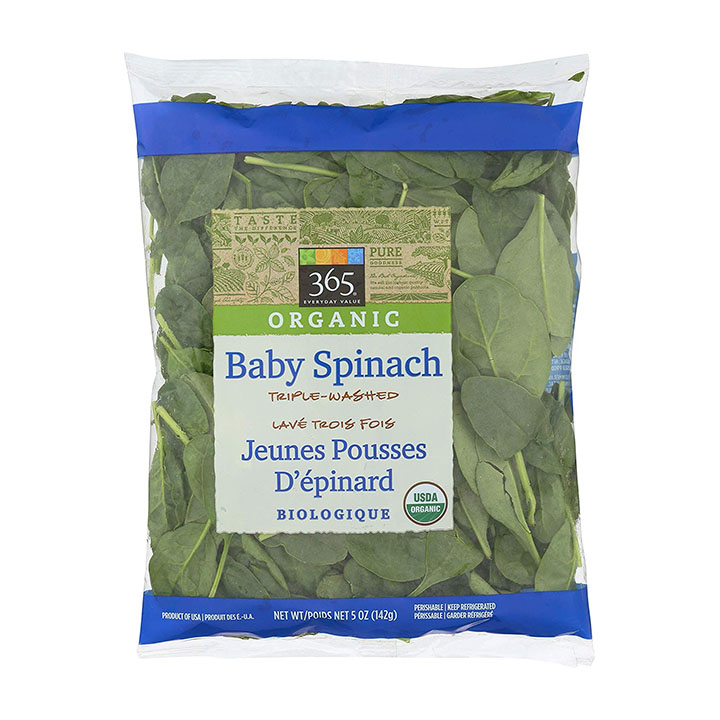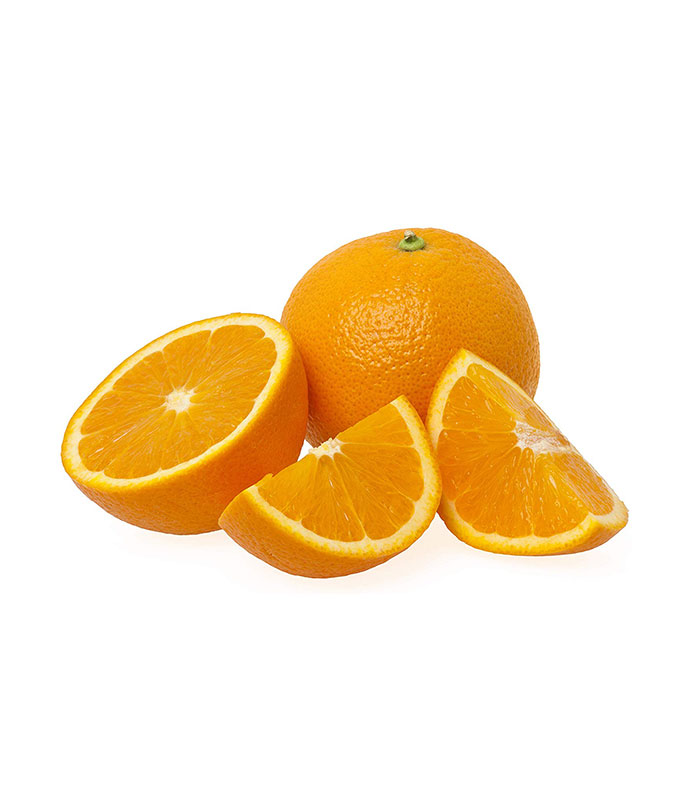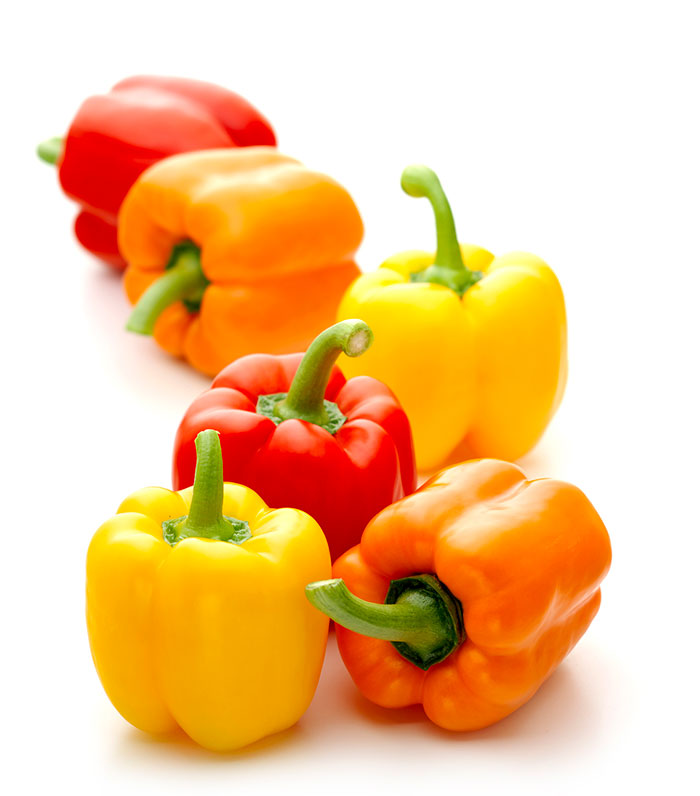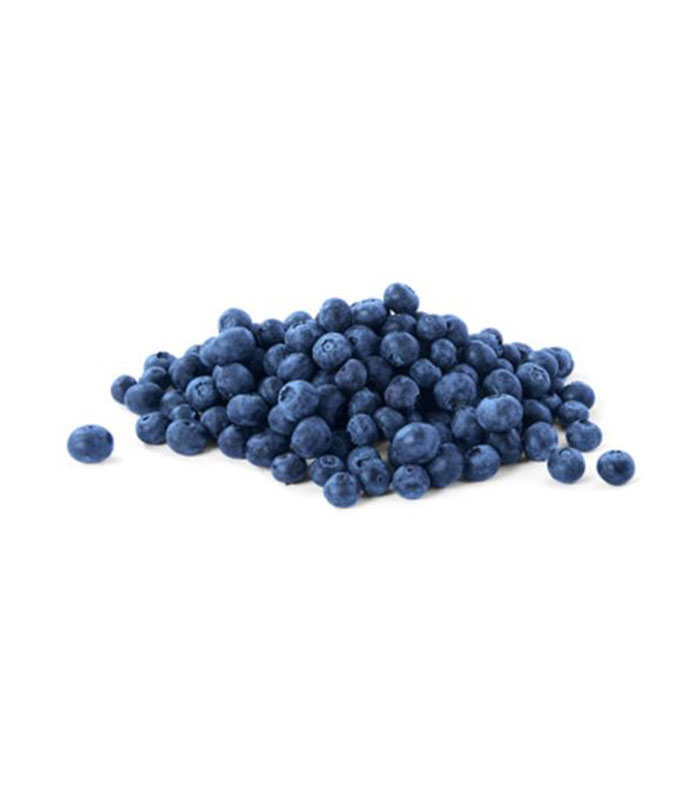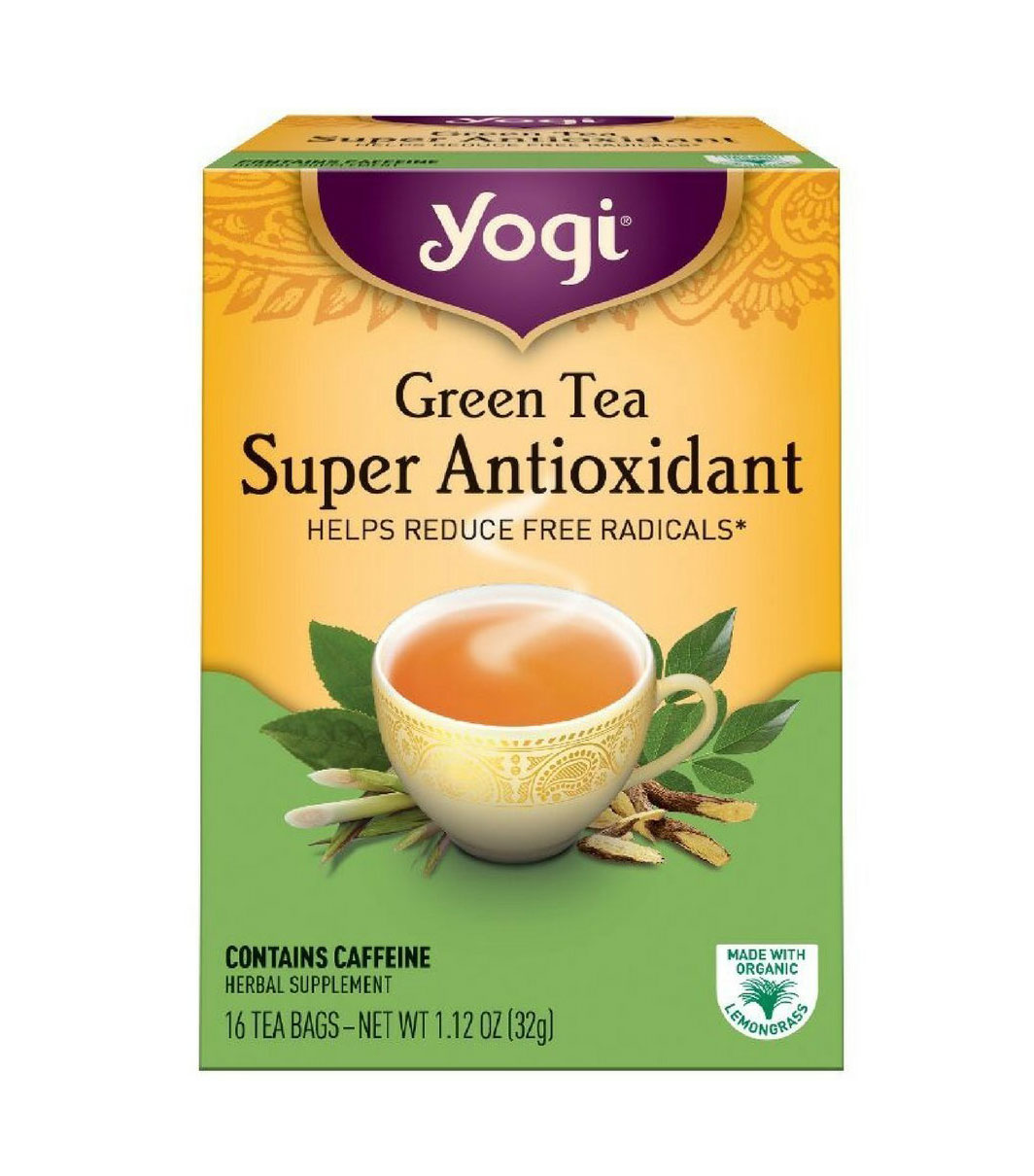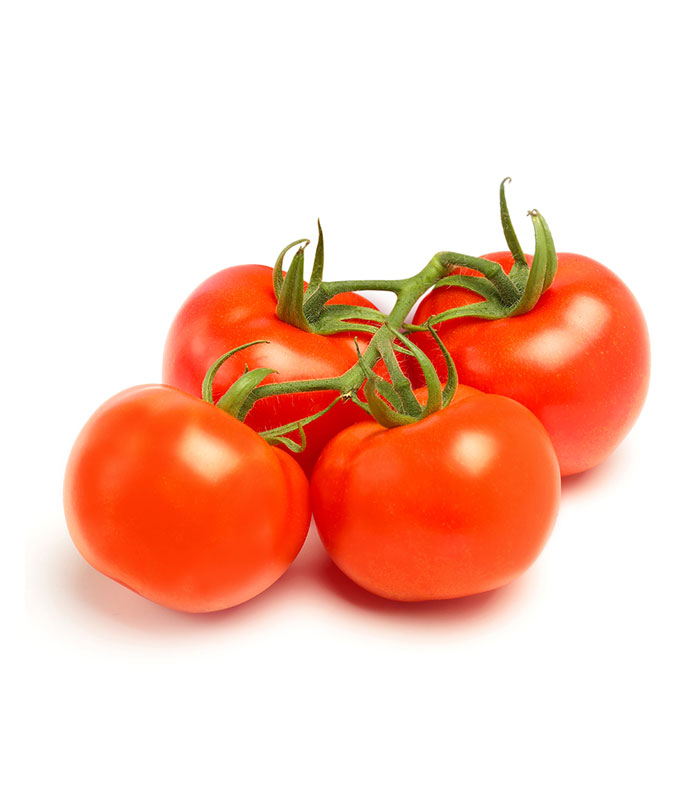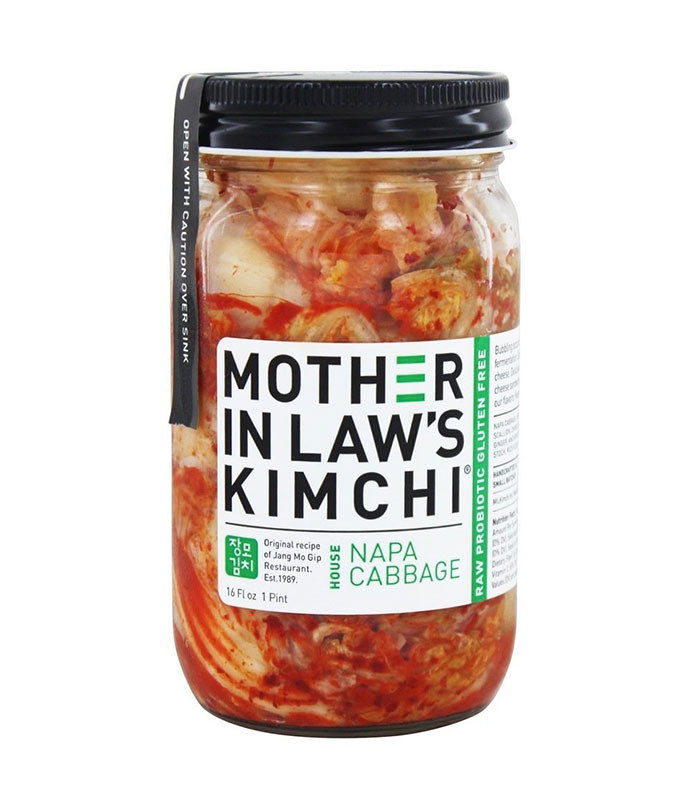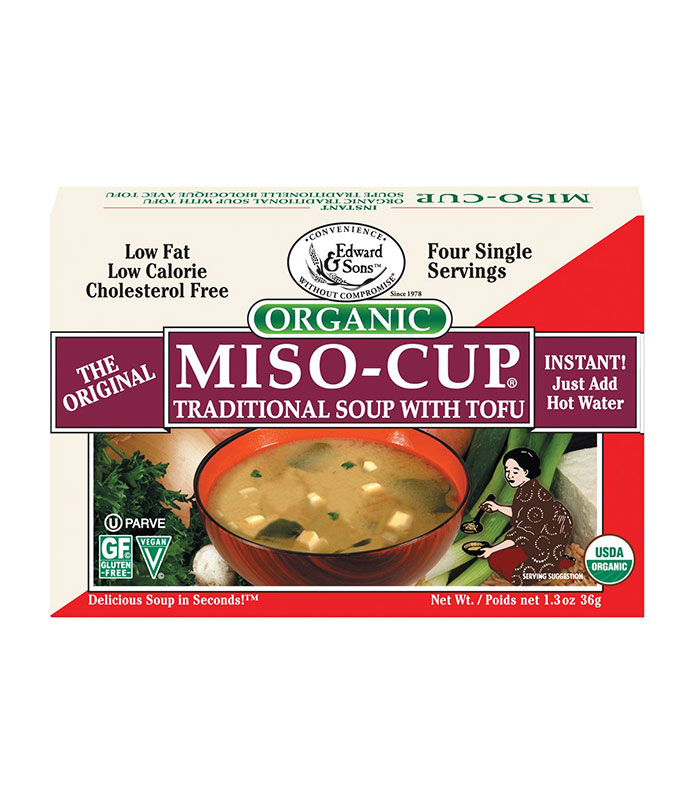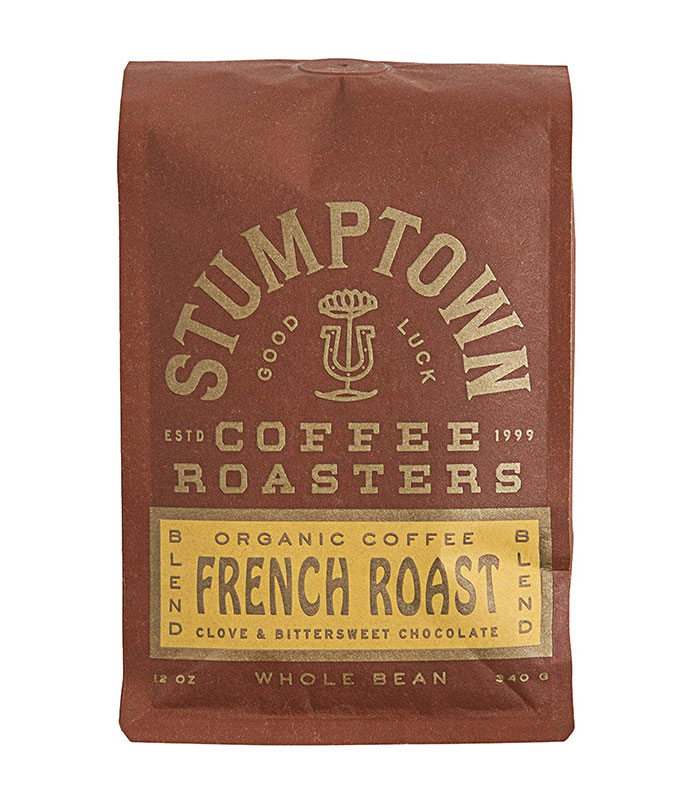The 4 Foods Dermatologists Want You to Avoid—and 8 They Want You to Start Eating
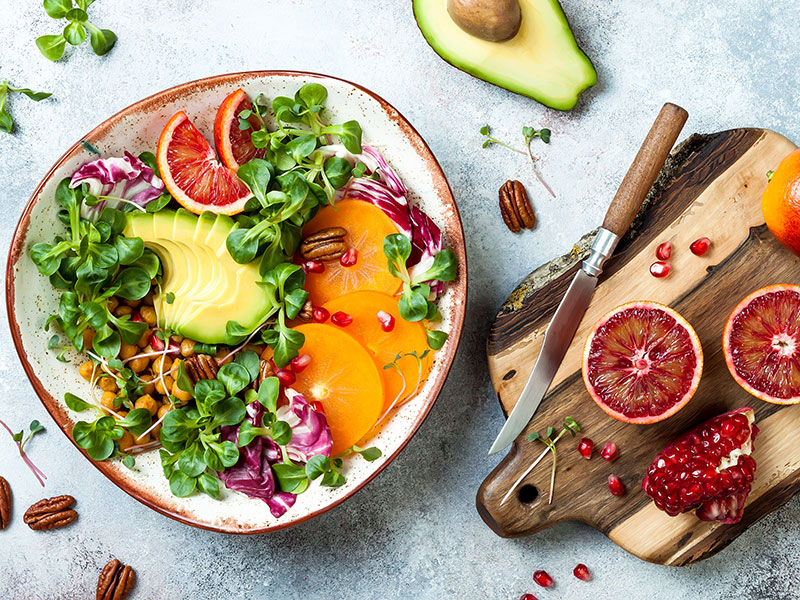
Sure, fancy skincare, supplements, and treatments can help, but the secret to flawless skin, healthy hair, and strong nails lies in your diet, too. What you eat every day can make a big difference, which could explain why you might break out after eating a greasy meal, or why your nails become brittle when you don't consume enough of a certain nutrient. Plus, when you eat well, you feel better, too, so a healthy diet is a win-win on all sides.
To figure out which foods can help and which to avoid, we asked two dermatologists—Julie Karen, MD, FAAD, assistant clinical professor of dermatology at NYU Langone Medical Center, and Sonia Badreshia-Bansal, MD, FAAD, a board-certified dermatologist in private practice—to weigh in with their recommendations. Both noted that different foods have different effects on people, so consulting your doctor can help. And Badreshia-Bansal adds, "Keep a log or food diary—watch for patterns of foods that flare up your skin and avoid them."
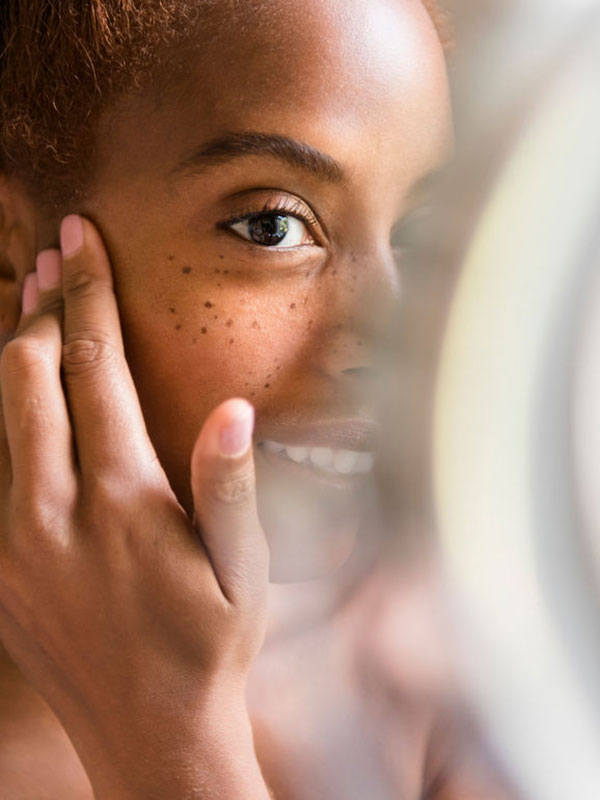
Take a look below and add some to your shopping list. They might not produce a change overnight, but you could notice some changes after a while. And if you're experiencing some skin, hair, and nail problems that seem more unusual, make sure you discuss with a doctor or healthcare professional.
Foods to Avoid
1. High-Glycemic Foods
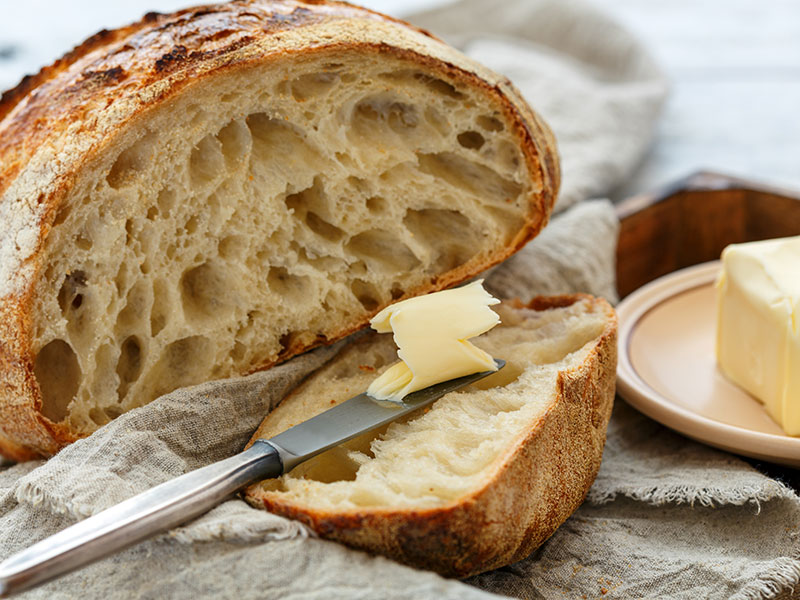
Foods high on the glycemic index release glucose rapidly, which could affect your blood sugar levels. Some people might consume high-glycemic foods for energy recovery after exercise or to avoid hypoglycemia, according to Harvard Health Publishing. But in some cases, these foods might be bad for your skin. "In general, a high-glycemic-index diet can wreak havoc on the skin, promoting acne in certain individuals and contributing to general systemic inflammation, which can thereby lead to premature aging," says Karen. On the flip side, a study in 2007 in the American Journal of Clinical Nutrition found that there may be a link between a low-glycemic diet and an improvement in acne.
Examples of high-glycemic foods include white-wheat bread, whole-wheat bread, watermelon, potatoes, and honey. That doesn't mean you have to say goodbye to these foods completely, as most experts recommend it's best to keep a balanced diet, but you might want to limit and monitor your intake.
2. Fatty and Greasy Foods
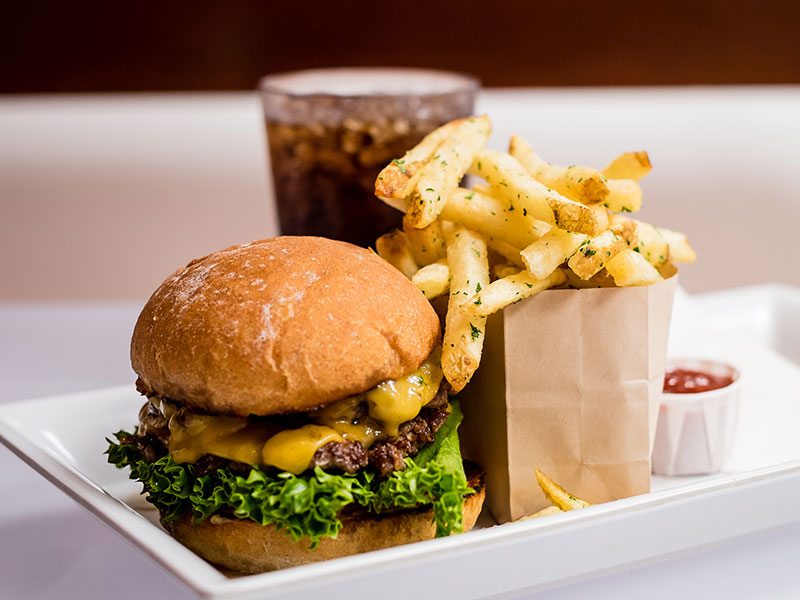
"Fatty and greasy foods, as well as those high in processed sugar, should be minimized," Karen recommends. This makes sense because a lot of these foods are high on the glycemic index, like chips or fries. Badreshia-Bansal agrees, adding that sugars and fried foods can worsen acne.
3. Dairy Products
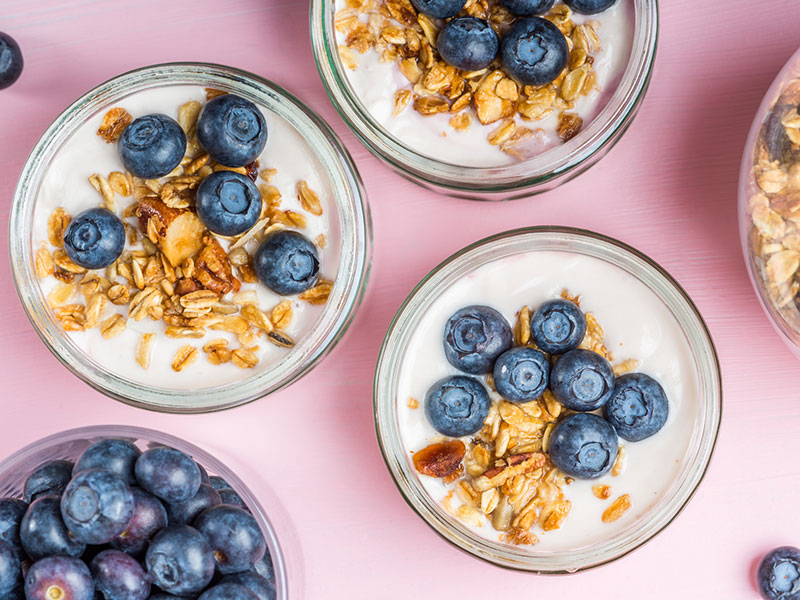
"Dairy products have been linked to acne flares in some, but not all, prone individuals," Karen says. The American Academy of Dermatology states that there are studies that show a weak link between dairy products and acne, but some studies found that dairy consumption played a part in acne severity in some study participants. Bottom line? Check with your dermatologist to see if there's a correlation between the two—this might be where the food diary will come in handy.
4. Spicy Foods
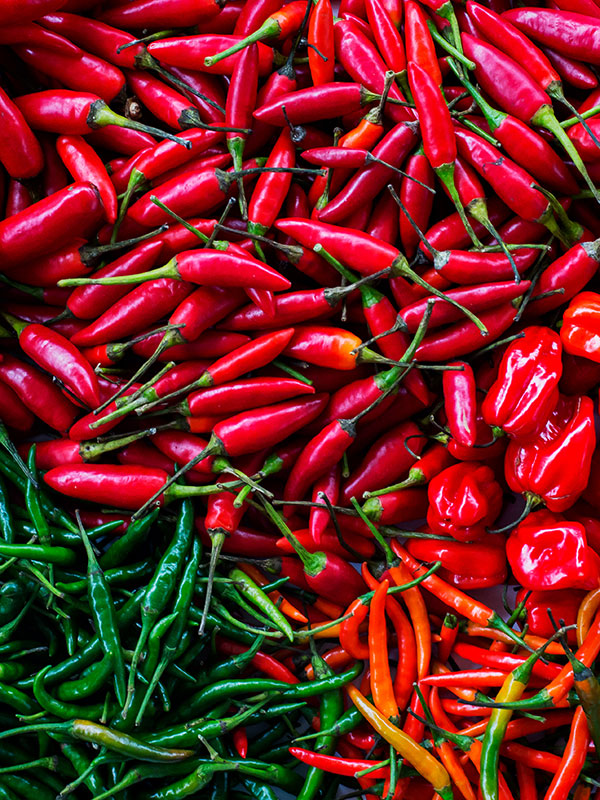
Badreshia-Bansal adds that spicy foods, along with alcohol and caffeine, can cause vasodilation (widening) of blood vessels, which could cause a rosacea flare-up in some people. For those who experience rosacea, you might want to keep a food diary, too, to see if there's a link.
Foods to Eat
1. Omega-3-Packed Foods
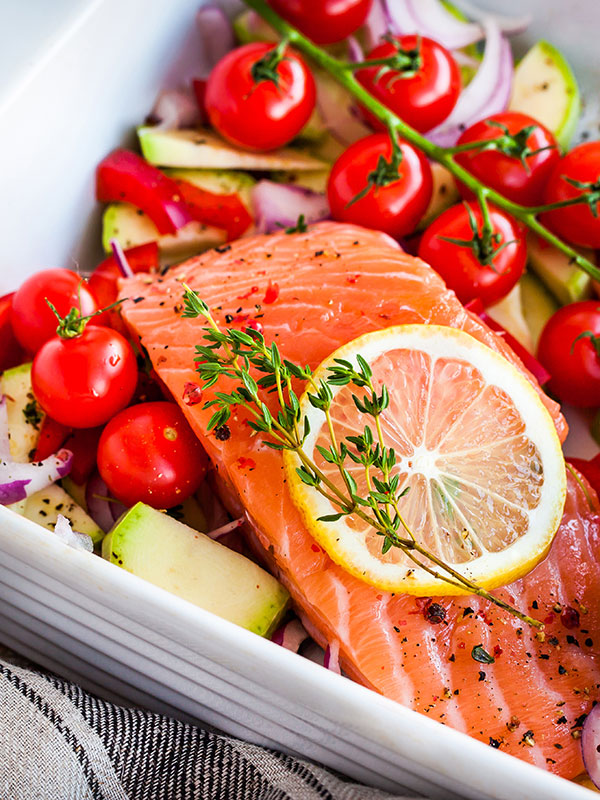
This is one food we'd gladly add to our eating plan—it's delicious. "Salmon offers a lean source of protein and is also rich in omega-3 fatty acids, known to be beneficial to the health of the heart and skin alike," says Karen. Other foods with omega-3s that Badreshia-Bansal recommends include nuts and avocados.
2. Vegetables
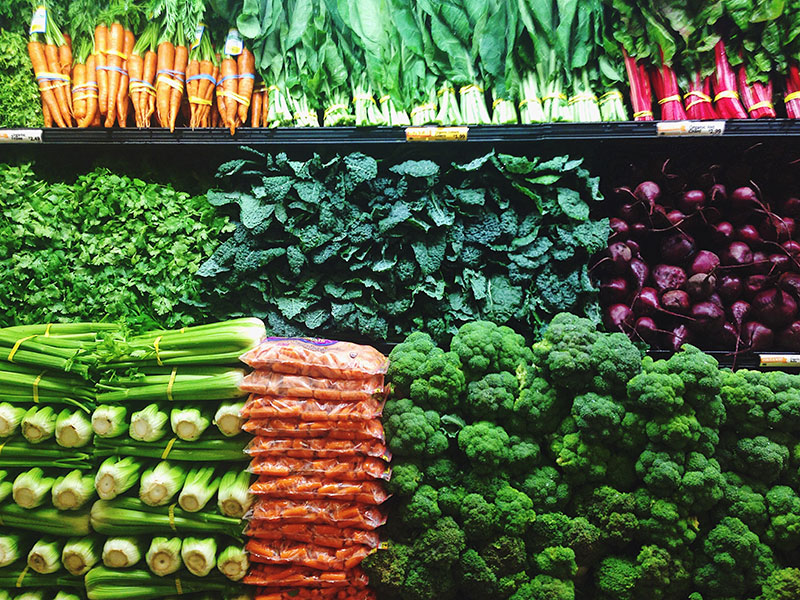
"In general, eating a clean and plant-based diet with fresh fruits and vegetables is healthier, as they are full of fiber, low-fat, and low-sugar, thus stabilizing insulin levels. Spikes in insulin can also cause acne," says Badreshia-Bansal. She recommends adding green, leafy vegetables to your shopping list.
3. Vitamin C
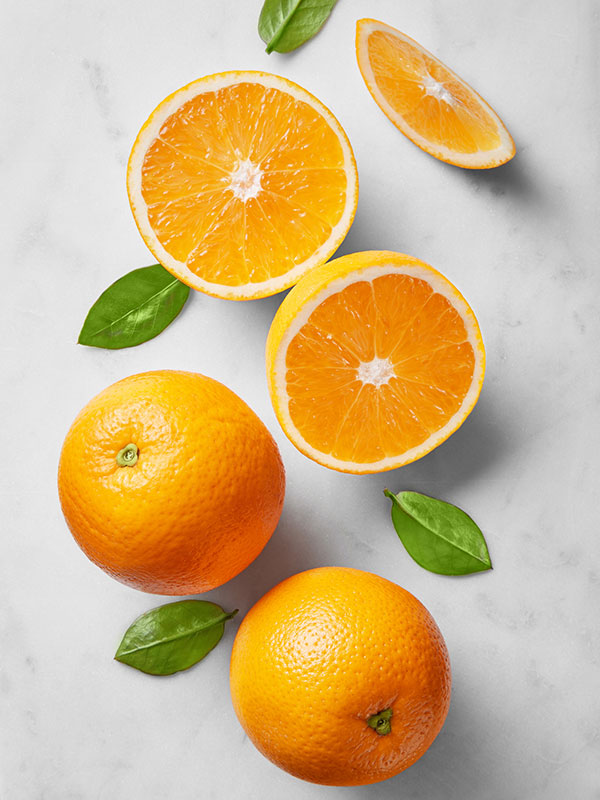
"Red peppers and citrus fruits are tremendous sources of vitamin C, which not only is a powerful antioxidant but also an essential precursor to collagen production, which promotes skin thickness and health."
4. Antioxidants
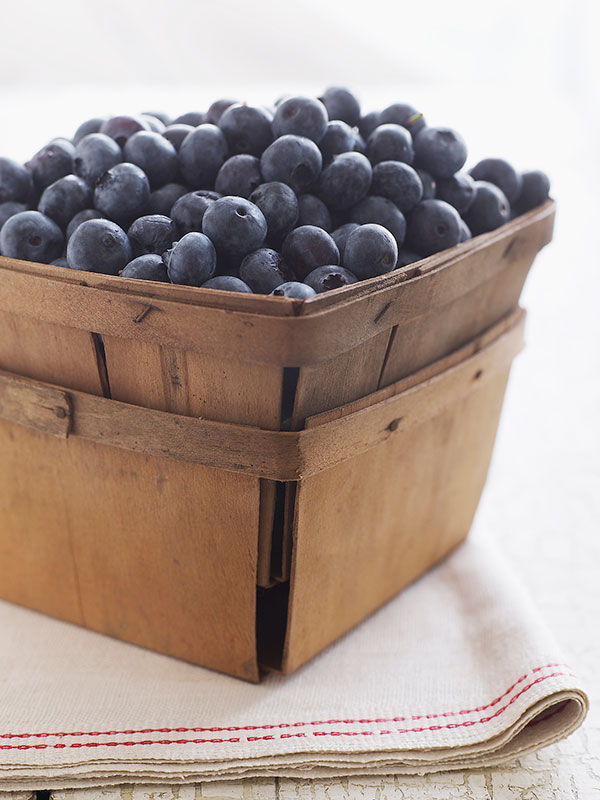
"Foods rich in antioxidants can be very helpful at promoting skin health. We know there is a great benefit to topical application of antioxidants—specifically neutralizing free radicals that result from UV and pollutant exposure," says Karen. Some antioxidants include green tea, blueberries, and tomatoes (which are rich in the powerful antioxidant lycopene).
5. Probiotics
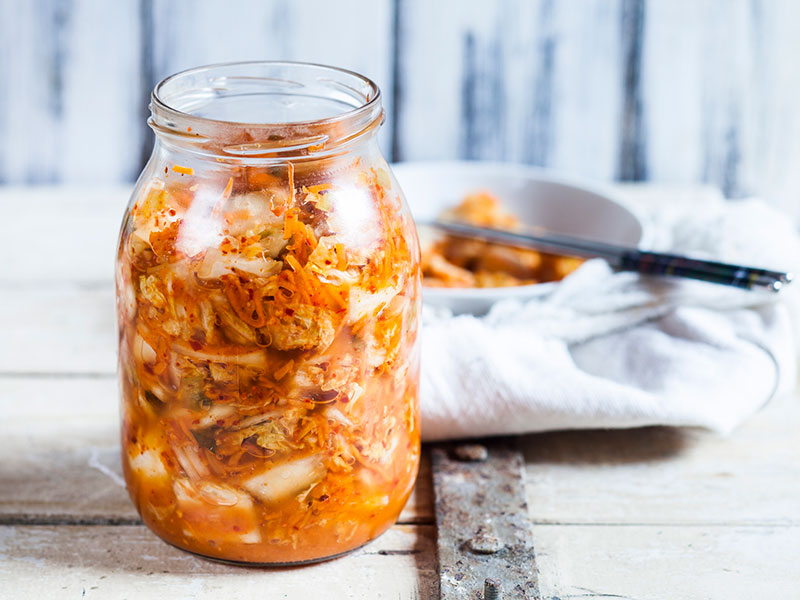
Badreshia-Bansal says probiotics, like kimchi and miso soup, can contribute to good skin. The American of Academy of Dermatology states that recent studies and research have shown that probiotics can improve acne or rosacea but advises people to check with their dermatologist first before they load up on these foods.
6. Red Wine
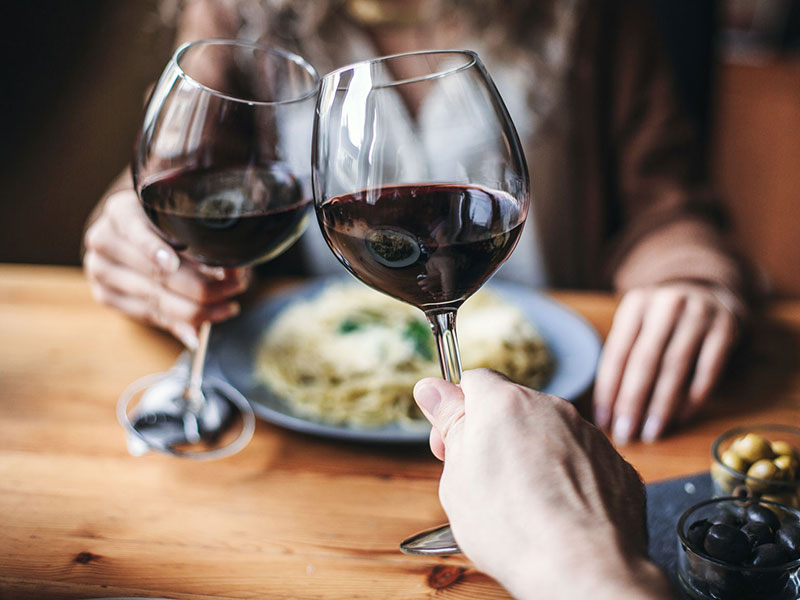
If you have a history of rosacea, you might not want to indulge since red wine might contribute to a flare-up, but in other cases, it might promote skin health. "Red wine contains resveratrol, a potent antioxidant that is healthy for the skin and the heart when consumed in moderation," Karen says.
7. Coffee
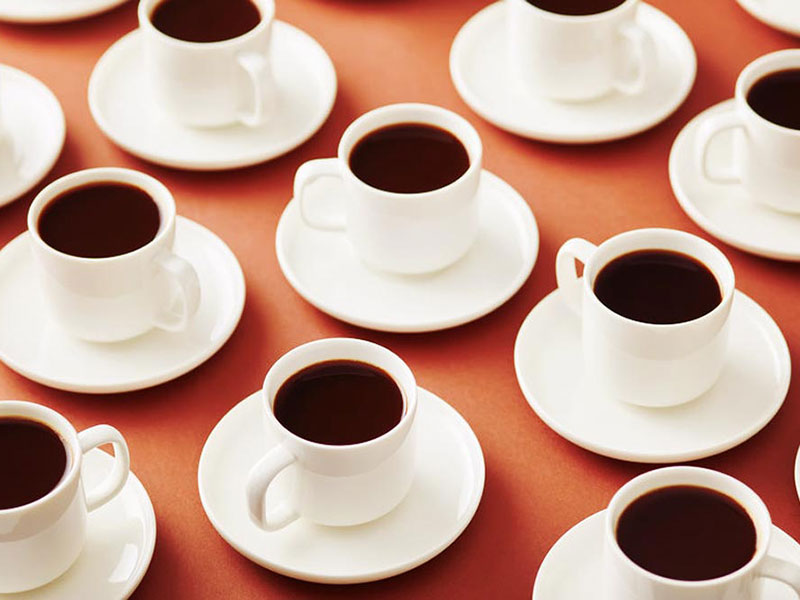
Another one that might worsen rosacea for some people, coffee also has some good skin benefits. Karen says it can promote efficient circulation to the skin and improve skin health, and it also has antioxidant properties.
8. Water
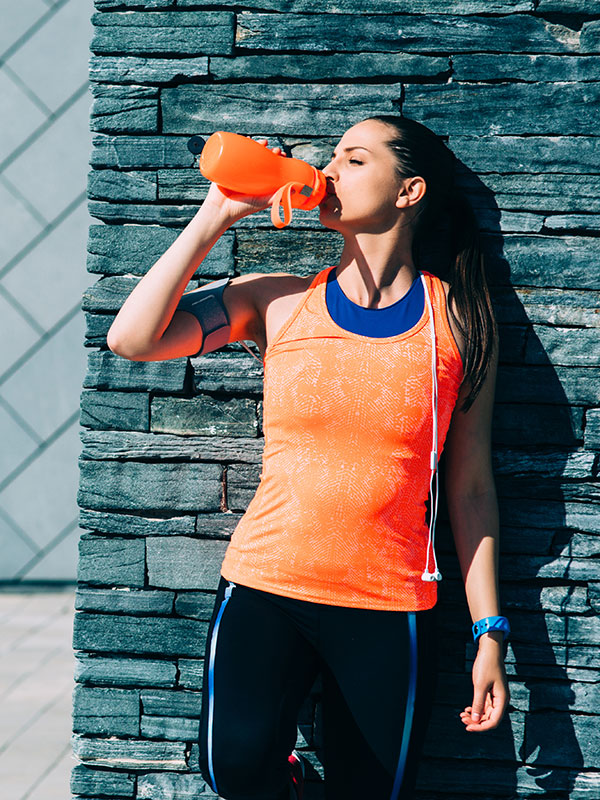
There's nothing better than good ol' H20. "The importance of staying adequately hydrated to maintain cellular function and healthy, supple skin cannot be overstated," Karen says.
Next up: Steer Clear of These 12 Popular Foods, According to a Gut Expert
This article was originally published at an earlier date and has since been updated.
This article is provided for informational purposes only and is not intended to be used in the place of advice of your physician or other medical professionals. You should always consult with your doctor or healthcare provider first with any health-related questions.
Sarah is lifestyle writer and editor with over 10 years of experience covering health and wellness, interior design, food, beauty, and tech. Born and raised in Los Angeles, she attended New York University and lived in New York for 12 years before returning to L.A. in 2019. In addition to her work atBest Knockoff Luxury Clothing , she held editor roles at Apartment Therapy, Real Simple, House Beautiful, Elle Decor, and The Bump (sister site of The Knot). She has a passion for health and wellness, but she especially loves writing about mental health. Her self-care routine consists of five things: a good workout, “me” time on the regular, an intriguing book/podcast/playlist to unwind after a long day, naps, and decorating her home.
